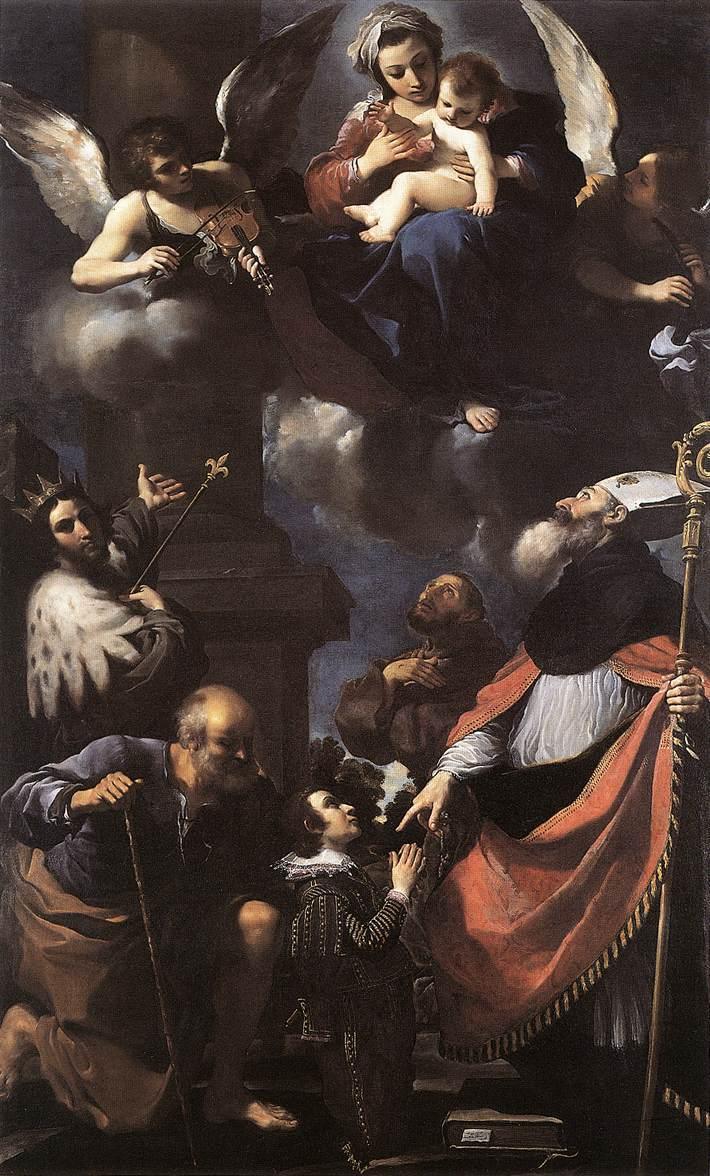Description
The painting "A Donor Presented To The Virgin" by Guercino is a masterpiece of Italian Baroque art of the 17th century. This work of art is one of the artist's most outstanding, and is considered one of the most important of his career.
The composition of the painting is impressive, with a majestic Virgin Mary and a donor kneeling at her feet. The figure of the donor is presented by an angel, who leads him to the Virgin. The composition is balanced and harmonious, with great attention to detail in each element of the painting.
Guercino's artistic style is evident in this work, with his use of light and shadow to create depth and realism. The color is vibrant and rich, with warm, earthy tones that create a feeling of warmth and serenity.
The story behind the painting is fascinating. It was commissioned by the Bentivoglio family of Bologna, and is believed to have been painted in 1620. The painting was stolen in 1969 and recovered in 2014, after a lengthy search and police investigation.
There are little known aspects of this painting that make it even more interesting. For example, the donor depicted in the painting is believed to be Cardinal Ludovico Ludovisi, who was a major patron of the arts in Guercino's time. Furthermore, it is believed that the painting was influenced by the work of Caravaggio, another great artist of the Italian Baroque.
In conclusion, "A Donor Presented To The Virgin" by Guercino is an impressive work of art that combines beauty, technique and history in one painting. Its artistic style, composition, color and the story behind it make it a unique and fascinating work of art that deserves to be admired and studied.

